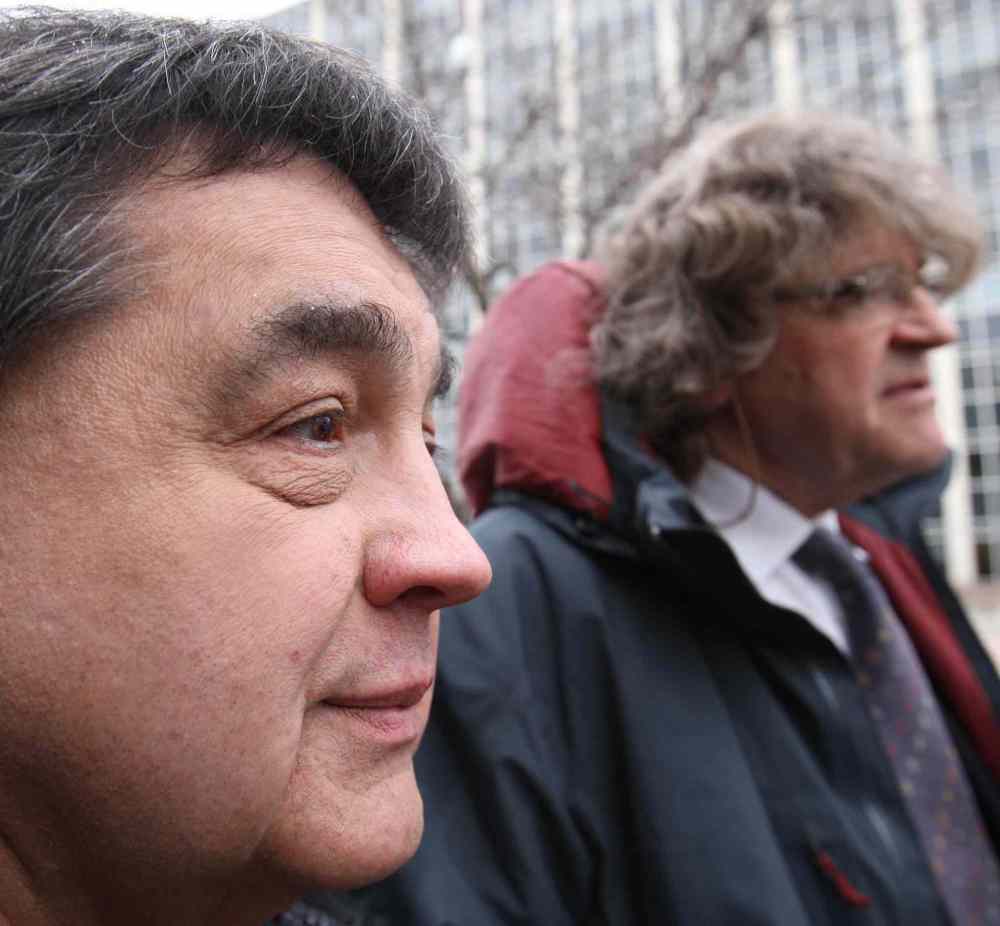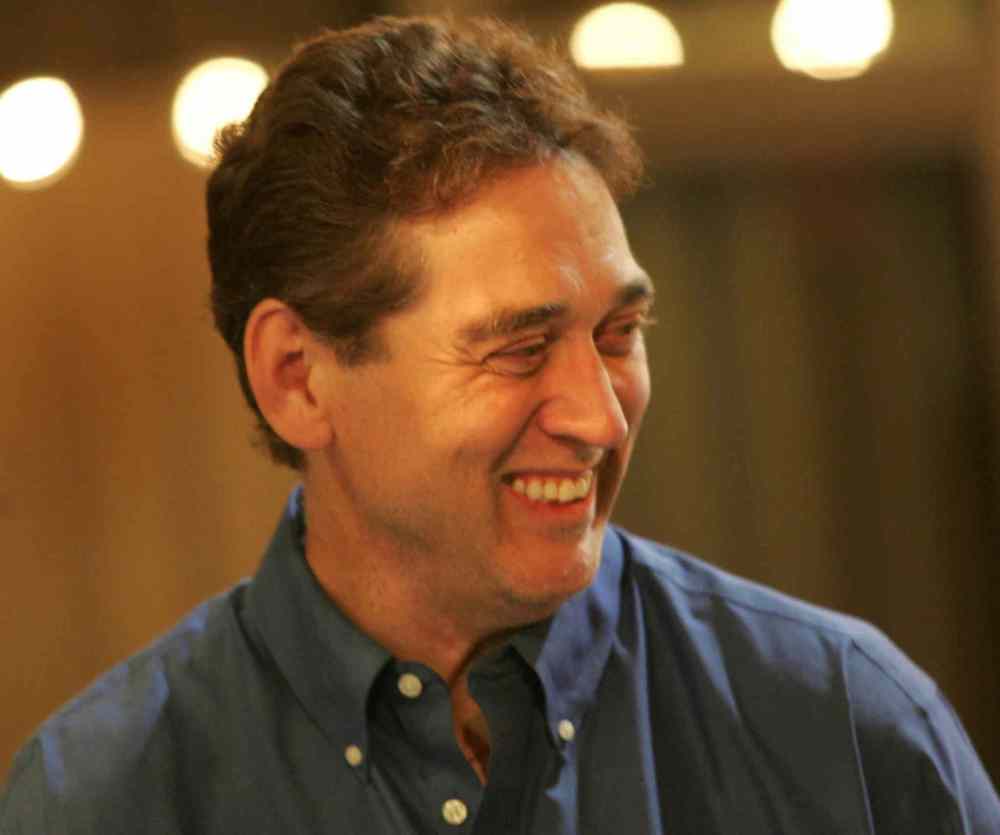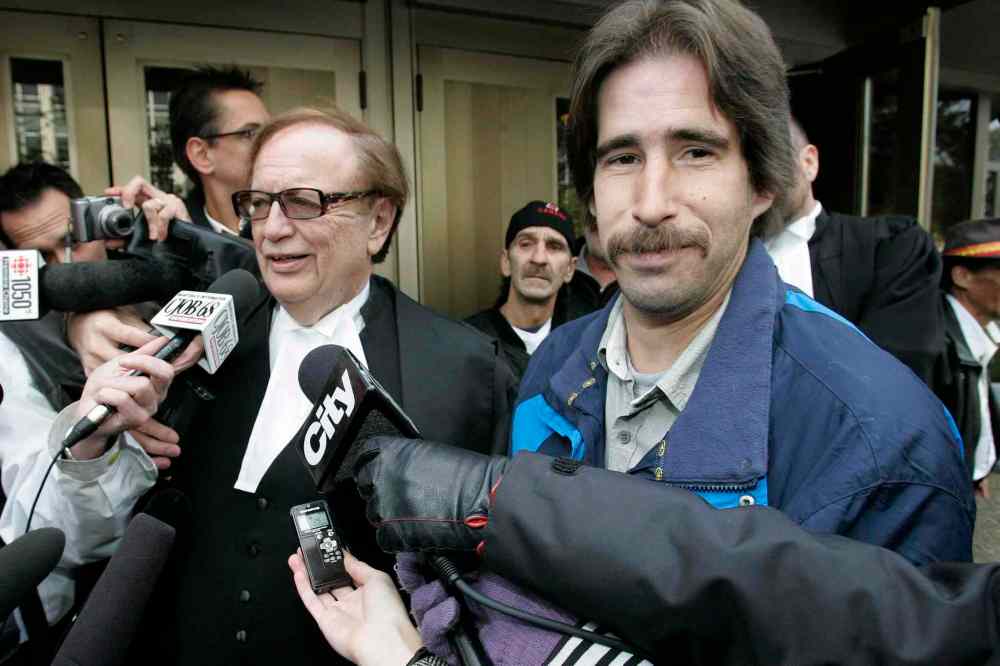Manitoba appeal court to review 27-year-old murder conviction
Advertisement
Read this article for free:
or
Already have an account? Log in here »
To continue reading, please subscribe:
Monthly Digital Subscription
$0 for the first 4 weeks*
- Enjoy unlimited reading on winnipegfreepress.com
- Read the E-Edition, our digital replica newspaper
- Access News Break, our award-winning app
- Play interactive puzzles
*No charge for 4 weeks then price increases to the regular rate of $19.00 plus GST every four weeks. Offer available to new and qualified returning subscribers only. Cancel any time.
Monthly Digital Subscription
$4.75/week*
- Enjoy unlimited reading on winnipegfreepress.com
- Read the E-Edition, our digital replica newspaper
- Access News Break, our award-winning app
- Play interactive puzzles
*Billed as $19 plus GST every four weeks. Cancel any time.
To continue reading, please subscribe:
Add Free Press access to your Brandon Sun subscription for only an additional
$1 for the first 4 weeks*
*Your next subscription payment will increase by $1.00 and you will be charged $16.99 plus GST for four weeks. After four weeks, your payment will increase to $23.99 plus GST every four weeks.
Read unlimited articles for free today:
or
Already have an account? Log in here »
Hey there, time traveller!
This article was published 24/11/2014 (4034 days ago), so information in it may no longer be current.
Frank Ostrowski took a giant step forward today towards to clearing his name of a 1987 murder conviction.
The 65-year-old Ostrowski appeared briefly in court in the first stage of an eventual hearing before the Manitoba Court of Appeal to review the tactics used by prosecutors to convict him of the drug-related slaying Robert Nieman Sept. 25 1986.
The hearing was ordered earlier today by federal Justice Minister Peter MacKay. By law, the federal justice minister has the authority to order a new trial or refer the matter to the court of appeal if a miscarriage of justice likely occurred.

“I am satisfied there is a reasonable basis to conclude that a miscarriage of justice likely occurred in Mr. Ostrowski’s 1987 conviction,” MacKay said in a statement.
A hearing date for Ostrowski has not been set. He was first granted bail in December 2009 when he was released from prison after 23 years behind bars.
“It doesn’t take long to put somebody in, but it takes a long time to change things,” Ostrowski said outside court.
James Lockyer, of the Association in Defence of the Wrongly Convicted (AIDWYC), said how the process before the appeal court progresses is up to the Manitoba Justice Department.
“The minister has referred it to the court of appeal to treat is as it were an appeal,” Lockyer said. “Sort of in a way we’re back in 1989 when (Ostrowski) lost his appeal in the Manitoba Court of Appeal and now he’s back there all these years later.”
Ostrowski, a former hairstylist turned drug dealer, has maintained his innocence since the day he was arrested in the Neiman’s killing. He was convicted in 1987 of first-degree murder and sentenced to life behind bars with no chance of parole for 25 years. The Crown argued at trial Ostrowski feared Nieman “ratted” on him to police about his cocaine operation.
Two other men were found guilty of Nieman’s killing. Robert Dunkley was convicted of pulling the trigger and continues to serve a life sentence in another province. Jose Luis Correia was granted “faint hope” release in 2008 and was later deported to his native Portugal. A fourth man, Jim Luzny, was also arrested, but charges against him were dropped.

In 1994, Ostrowski was convicted of the charge of possession of cocaine for the purpose of trafficking, which he was facing at the time of Nieman’s murder. He received a sentence of 15 years’ imprisonment, concurrent to his life sentence.
Since his release on bail five years ago, Ostrowski has worked as a custom-belt maker, hair stylist and for the John Howard Society. He has not become re-involved with police.
The review of Ostrowski’s murder conviction by the appeal court is not a new trial; it’s a review of his prosecution and whether he got a fair trial. The court could order a new trial, but given the passage of time and the findings by other courts in Canada in similar wrongful conviction cases, the panel could quash his conviction.
Lockyer has argued there is considerable evidence Ostrowski got a raw deal at his murder trial because important information was not disclosed by the Crown and police.
The main issue is a secret deal key witness Matthew Lovelace made with federal authorities to testify against Ostrowski in order to get a cocaine-trafficking charge against him withdrawn so he wouldn’t go to jail.
AIDWYC says in his trial testimony, Lovelace and the Crown lawyer prosecuting Mr. Ostrowki, George Dangerfield, flatly denied such an arrangement had been made.

Lockyer said the offer should have been disclosed to the jury so jurors had a full picture of Lovelace’s credibility.
“Their case against Frank was pretty simplistic—it was Matthew Lovelace. He was their case,” Lockyer said. “We have I think now found out that what was presented to us in his form was a fraud, a fraud on the court and a fraud on Frank Ostrowski.”
Ostrowski’s murder conviction has already been reviewed by retired Justice Roger Salhany of Ontario’s Superior Court of Justice and lawyer John Briggs, the former head of the Nova Scotia Law Reform Commission. Both reports formed the base of MacKay’s decision.
Other wrongful convictions
Ostrowski’s case follows earlier decisions on other Manitoba murder convictions. Kyle Unger, James Driskell and Thomas Sophonow have already had their names cleared after serving lengthy stints behind bars.
- Kyle Unger: Unger has already launched a $14.5-million wrongful-conviction lawsuit against four RCMP members, three former provincial prosecutors and the attorneys general of Canada and Manitoba.
- He was imprisoned for 14 years in the 1990 murder of 16-year-old Brigitte Grenier. At trial, an RCMP expert testified a hair found on Grenier’s sweater belonged to Unger, but that was later disproven. It was the only physical evidence against him, but DNA tests in 2005 showed the hair belonged to someone else. Unger was cleared of involvement in Grenier’s murder.
- In 2009, a federal review said there was a “reasonable basis” to conclude Unger was the victim of a miscarriage of justice and a new trial was ordered. He was acquitted at the new trial Oct. 23, 2009, when the Crown called no evidence.
- James Driskell: Driskell was awarded $4 million in 2008 after he spent 12 years in prison for the 1990 murder of Perry Harder. Driskell was cleared in 2003 when new DNA tests discredited old hair-sample evidence used against him at trial.

- Thomas Sophonow: Sophonow was awarded $2.6 million in 2001 after he spent four years in prison for the 1981 murder of Barbara Stoppel. He was exonerated by former Winnipeg police chief Jack Ewatski in 2000 after a new suspect was identified. That suspect, Terry Arnold, died of a drug overdose in his Victoria, B.C. apartment in 2005.
bruce.owen@freepress.mb.ca
History
Updated on Tuesday, November 25, 2014 8:12 AM CST: Adds link
Updated on Tuesday, November 25, 2014 9:56 AM CST: Corrects typo
Updated on Tuesday, November 25, 2014 11:47 AM CST: Adds photo
Updated on Tuesday, November 25, 2014 12:30 PM CST: Updates with full writethru




